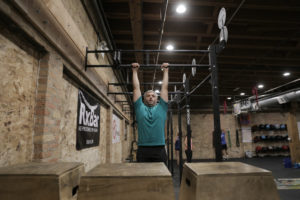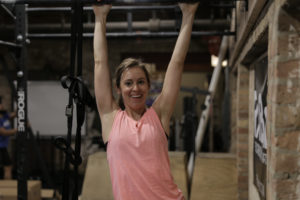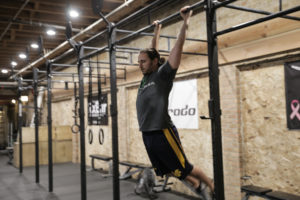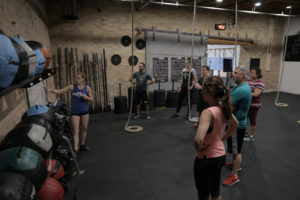When is coaching not enough?
At what point do I have to take responsibility as an athlete for my own progress?
At what point will my effort match that of my coaches?
These are all questions I asked myself 1) in the quest to walk-on to my college football team and 2) in the quest to run/own a successful gym.
Luckily, I was/am fortunate enough to be coached by some of the best people/coaches in the world. Football coaches, weightlifting coaches, my parents, best friends, and mentors in the fitness industry have all shaped who I am as a person and a coach.
Along the way, I came to the realization that I have a profound responsibility to any athlete I encounter.
- A responsibility to care.

- A responsibility to teach sound practices based on both science & experience.
- A responsibility to set athletes up for success by prescribing appropriate progressions.
- A responsibility to motivate & inspire.
- A responsibility to practice what I preach and lead by example.
I can speak for my peers and myself when I say we LIVE the above criteria. It’s what being a coach at Bluprint Fitness is all about. It takes relentless effort that is driven by an unwavering want to help others.
I firmly believe that there is NO SUBSTITUTE FOR HARD WORK and there are no shortcuts to real results.

IF you want the best chance at results:
- Work your ass off.
- Find sound coaching resources.
- Be coachable.
You may be saying to yourself, “ok I get the above concepts, but what are the specifics when it comes to learning to perform a new skill or crush a lifting goal? This is a gym blog right?”
Example: Perform a Muscle Up
- Step 1: Find A Resource (Coach, Blog, Athlete Program, etc.) that can point you in the right direction.
- Step 2: Create a program that builds foundational pulling strength with progressions (aka pull-ups/etc. see example HERE)
- Step 3: Commit to consistent practice 2+ times each week with no exceptions.

- Step 4: Work your ass off.
- Step 5: Adjust program as needed when abilities progress and movements are mastered.
There are many ways to reach goals but there are very few shortcuts. The above example is a systematic approach we’ve found works with variations based on individual needs and abilities.
Athletes: I want to challenge you to follow the above approach for whatever skill you want to learn. As a rule-of-thumb, a program should be stuck with for at least 8-12 weeks to assess its ability to create change. Be consistent, work hard, and be coachable.
Coaches: I want to challenge you to be the beacon of truth and inspiration to your athletes while giving 100+% effort 100+% of the time.
JUGZ
